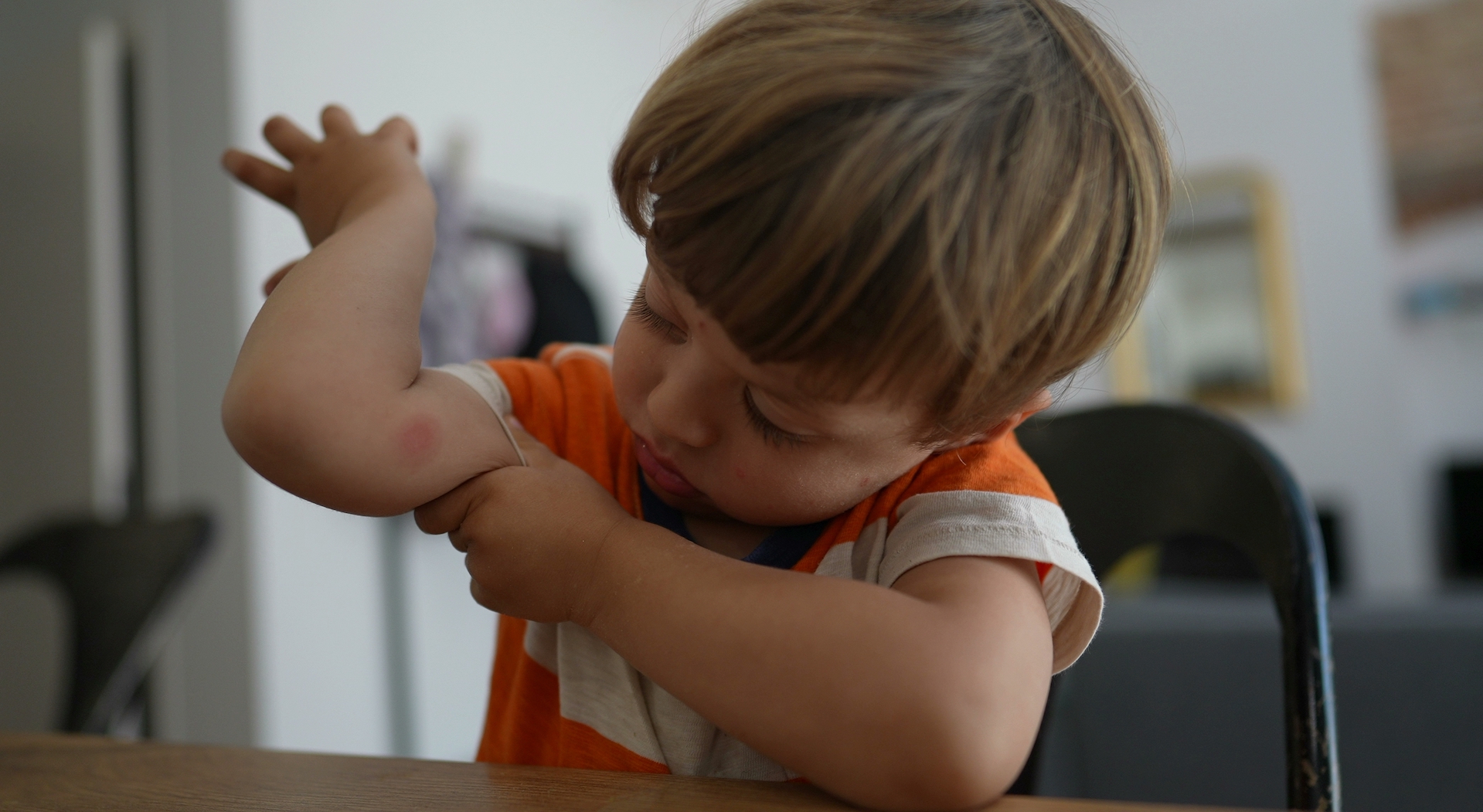Insect Bites and Stings
BY NATIONAL PHARMACIES CHIEF PHARMACIST, BEC ROGERS.
With the weather warmer and the days longer, Australians are spending more and more time in the great outdoors. Some insects and pests also enjoy the warmer weather, and we should be keeping an eye out for the likes of ants, mosquitoes, sand flies, ticks, fleas, wasps, bees, and spiders to avoid their bites and stings.

Most insects will not be poisonous, but there is risk of allergic reaction caused by insect saliva or venom when they bite or sting.
Symptoms of a bite or sting will vary depending on how sensitive the person is to that insect, but may include:
- An intense burning feeling
- Redness and inflammation around the site
- Pain that generally improves after an hour or so
- Allergic reaction to an insect may result in more significant inflammation, pain, and blisters may develop.
In rare cases an anaphylaxis response may occur. Symptoms include any of the following: hives, severe itching, difficulty breathing, a hoarse voice, swelling of the lips or tongue, fainting, or in young children becoming pale and floppy. This is a severe allergic reaction and a medical emergency – an ambulance must be called if anaphylaxis is suspected.
Regarding spiders, most bites will not be serious but if you believe the spider is a funnel web or mouse spider, make sure the patient lies still and if the bite site is a limb, you should firmly bandage it. An ambulance should be called in this instance. A red-back or white-tailed spider bite site should be washed, and an icepack applied. Seek urgent medical assistance.
Tips for avoiding bites & stings:
- Apply topical insect repellents – for young children these can be applied to clothing instead of skin which may be sensitive to such products.
- Cover up in long-sleeved shirts and pants that fit well around the wrists and ankles.
- Avoid going outside at dusk and dawn when mosquitoes are most active.
- Avoid going barefoot outside.
- Use mosquito nets when camping.
Treating bites & stings:
- Keeping the area cool with a cool bath or an icepack (wrapped in a cloth) can help with itch and inflammation.
- Your Pharmacist can suggest some topical treatments such as creams containing corticosteroids, aluminium sulphate, or local anaesthetics. Oral antihistamines can also help.
- If symptoms do not improve in a few days, worsen, or you’re concerned about the bite or sting for any reason you should seek advice from a pharmacist or doctor.
REFERENCES:
https://www.healthdirect.gov.au/insect-bites-and-stings
https://www.rch.org.au/kidsinfo/fact_sheets/insect_bites_and_stings/
https://www.betterhealth.vic.gov.au/health/healthyliving/bites-and-stings-first-aid